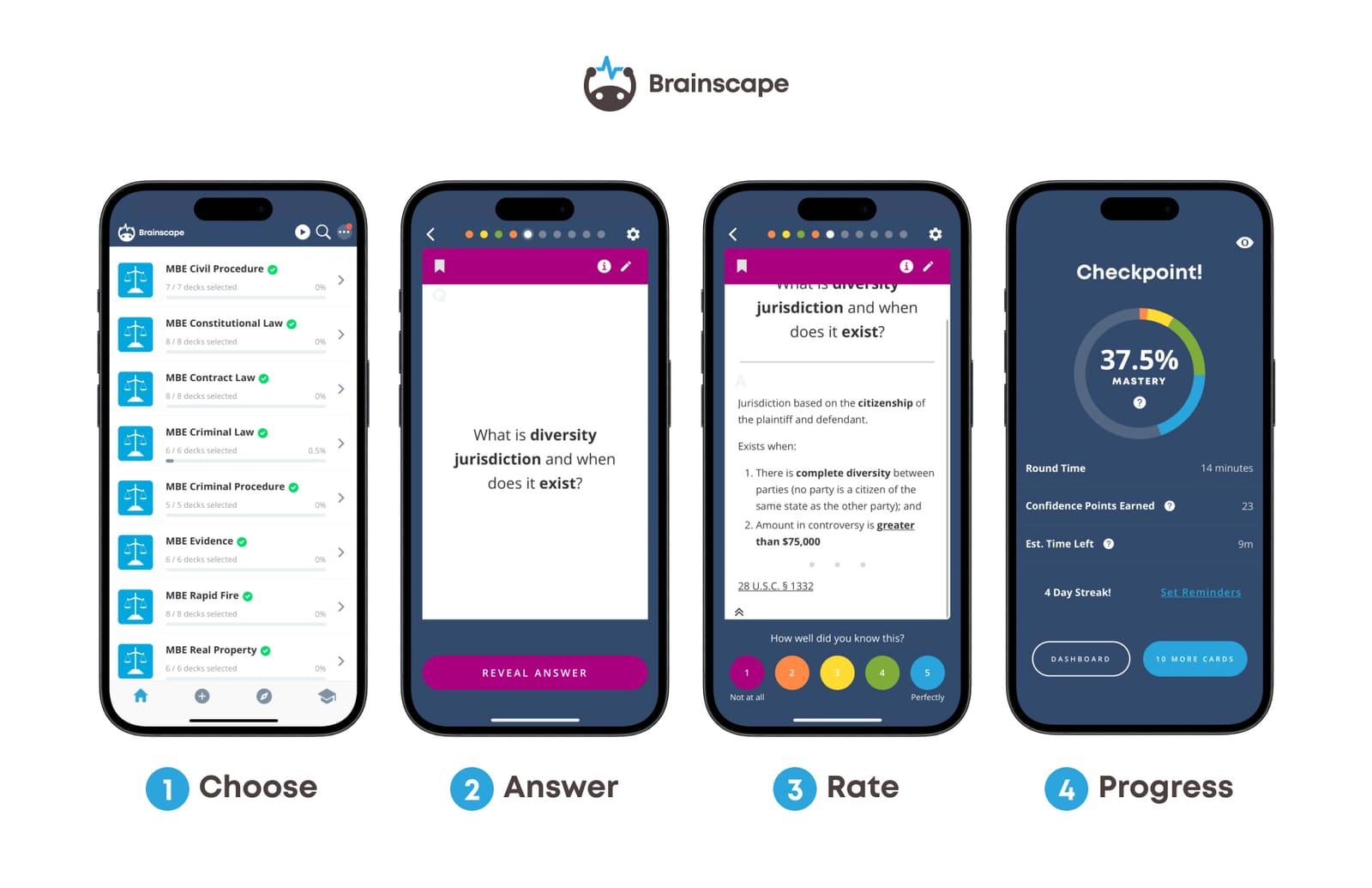Ah, the Praxis Social Studies (5081) exam—a rite of passage for all aspiring social studies teachers.
Whether you’re jazzed about teaching history, discussing the intricacies of global economies, or just trying to remember what “hegemony” actually means, this exam is your golden ticket into the classroom.
But, first, there’s a giant mountain of information you need to conquer before getting there. Embarking upon your Praxis Social Studies 5081 exam prep can feel like being dropped in the middle of a vast, overwhelming, uncharted territory.
The good news is that with the right strategy and study tools, you can soar to the summit faster than a caffeinated grackle!
Today, we’ll cover everything you need to know, from passing scores by state to Praxis Social Studies review flashcards that’ll have already broken down all the information you need to study, saving you the guesswork and strain of figuring that out for yourself.
So grab your favorite highlighter, a hot beverage, and let’s break down how to pass the Praxis Social Studies: Content Knowledge exam with flying colors.
What to expect from the Praxis Social Studies: Content Knowledge (5081)
First things first: what exactly are we dealing with here?
The Praxis Social Studies: Content Knowledge (5081) exam is designed to test your knowledge of various social studies content areas—U.S. history, world history, government, economics, geography, and behavioral sciences. It's like all your college exams smooshed into one.
You’ll face 130 multiple-choice questions in two hours. That’s a long climb.
(Check out our handy exam guide on the best strategies for answering multiple-choice questions.)
The exam covers big topics, so as an essential start, you need to lay out a roadmap to the top: a clear study strategy for your Praxis Social Studies Content Knowledge exam prep.
We’re here to help you do just that.
What’s the passing score for Praxis Social Studies: Content Knowledge (5081)?
It depends where you take it! This exam is scored on a scale for each state. The passing score for the Praxis Social Studies 5081 exam ranges from 146 to 162. For example, if you’re taking it in Colorado, you’ll need a score of 150.
Make sure you check the specific requirements for your state.
Or just move to South Dakota where a score of 146 is a pass.
How is the exam structured?
The Praxis Social Studies: Content Knowledge (5081) exam is broken down into six content areas:
- U.S. History (26 questions)
- World History (26 questions)
- Government/Civics/Political Science (26 questions)
- Geography (19 questions)
- Economics (20 questions)
- Behavioral Sciences (13 questions)
It’s a bit like trying to win at Trivial Pursuit (but with somewhat higher stakes).
You’ll be expected to know everything from key historical events and the structure of government to economic principles and geographical concepts.
For an idea of the style of questions, it’s definitely a good idea to work through the free practice test on the Praxis website. Or listen to the top tips of a teacher who actually passed the Praxis Social Studies exam himself…
Exam prep strategies for the Praxis Social Studies Content Knowledge (5081) test
Okay, now that you know what’s coming, what’s the best way to prepare to ensure that you pass… and pass well?
One of the biggest pain points of students like you—who are preparing to take the Praxis Social Studies 5081 exam—is that the body of content covered in the test plan is large and undefined. Which facts are important to know? Which aren't? How will you get through it all?
The following strategies will help you learn what you're up against and plot out a path forward. After that, I'll tell you about a study tool that'll make your life SO. MUCH. EASIER that billboards should be erected in its honor.
- Get familiar with the content areas: Know what you’re up against. Read through the Praxis Social Studies Study Companion, which lays out all the key take-aways you should have from each section. This will help you focus intensely on what you need to know, while avoiding wasting time on random bits of trivia that won’t be on the test.
- Create a study plan: Divide and conquer. You’ve got multiple content areas to review, and cramming everything into one night won’t work. (It never does.) Set up a study schedule that allows you to cover each topic thoroughly over a few weeks with plenty of time built in for breaks and revision. (You can use Brainscape’s free study planner templates for pacing your work out between now and your exam.)
- Take a practice test: Praxis provides a free practice test on Social Studies Content Knowledge—with more available for purchase—which you should absolutely take. These are essential for getting a feel for the format and types of questions you’ll face in the real exam, while helping you figure out what you already know and which areas need more attention. Your final exam is 130 questions in two hours, so take these tests under timed conditions.
- Rethink your study tactics: Most people stick to the familiar—highlighting textbooks, making notes, and rereading those notes over and over. While this might feel productive, it’s far from efficient. In order to actually retain information, you need to push your brain to actively recall the information from scratch, which you can do by “teaching” the content content aloud as though to a sixth grader (the Feynman Technique); answering questions that aren’t multiple-choice (which involves recognition rather than recall); and/or with Praxis’s Social Studies Content Knowledge flashcards (more on this in a bit).
Spaced repetition is another proven learning tactic that can help you learn TWICE as fast and retain information for longer. This method spaces out your review sessions at strategic intervals, which is proven to cement the material into your long-term memory. Thing is, how do you do that? How do you know what the perfect intervals are for every single concept you’re trying to learn? And how do you logistically accomplish that with just your notes and videos?
The answer is… Brainscape: a flashcard app that automates spaced repetition and doubles your learning speed!
A study app that helps you learn as fast as humanly possible: Praxis Social Studies review flashcards
Brainscape is the ultimate study weapon for an exam like the Praxis Social Studies Content Knowledge 5081 because it incorporates spaced repetition and active recall into its study algorithm: two proven techniques to help you learn faster and retain information for longer.

In addition to a study algorithm that helps you learn as fast as possible, Brainscape has partnered with Praxis to create a collection of 400+ digital flashcards covering all of the essential Social Studies Content Knowledge 5081 content you need to know to crush the exam. This saves you the enormous amount of time, guesswork, and stress of figuring out what you need to learn.
Additionally, Brainscape tracks your study progress, so that you know exactly how many hours you have left to reach 100% mastery of the material. So, whether you’ve got a month to study or just a few days (no judgment), Brainscape’s flashcards will help you learn what you need to know to pass the Praxis Social Studies exam—and fast.
No decisions, no doubts. Just highly effective studying that relentlessly drills you on your weaknesses until they become your strengths!
Pro tip: Download the app on your phone and sneak in some review sessions whenever you’ve got a few minutes to spare. Waiting for coffee? Flashcard time. On the bus? Flashcard time. Particularly arduous (ahem) bathroom break? You get the idea.
How to keep yourself sane during Praxis Social Studies Content Knowledge exam prep
We get it. Studying for a big exam like this can feel overwhelming.
Here are a few tips to help you stay calm and collected while preparing:
- Create a study routine: You can’t follow a plan until you have one. Plot out what to study, when, and where. This will help you feel secure in the knowledge that if you just follow the plan, you’ll arrive at the desired outcome. (Check out our guide to building a study routine to maximize productivity.)
- Take frequent breaks to avoid cognitive overload: There is a limit to how much new information your brain can absorb in a single sitting. Without rest periods to process and consolidate new data, everything you cram in will fall right out. Use the Pomodoro Technique to study in focused 25-minute intervals, with short breaks in between. Go for a walk, do some stretches, or take a nap. Frequent study breaks will, counterintuitively, help you learn faster! (Check out our guide on how to take study breaks for optimal learning.)
- Keep your chin up: It’s easy to get discouraged if you’re struggling with a particular topic, but don’t lose hope. You are perfectly capable of learning all this material and passing the exam. You've come this far. This is just another hurdle on a track you've already shown tremendous skill at running. With a daily investment of work—using smart study techniques like those we've recommended—you can and will pass this exam. You've got this.
- Get enough sleep: NEVER sacrifice sleep for extra study hours. You need your brain to be fresh and ready to tackle those questions. Sleep is when your brain consolidates information, so getting those Z’s is an integral part of the learning process. (Check out our no-nonsense guide to sleeping and studying.)
What to expect on exam day
On exam day, arrive early to your testing center—preferably 30 minutes early—and don’t forget to bring the required identification. You’ll have two hours to answer 130 multiple-choice questions, which means you have about 55 seconds per question. Time management is key, so don’t spend too long on any one question. If you're unsure, take your best guess and move on—you can always come back to it if time allows.
After the exam, your raw score (number of correct answers) will be converted into a scaled score, and you’ll typically get your results in a few weeks. Once you’ve got that passing score in hand, it’s time to celebrate—you’re one step closer to becoming a certified social studies teacher!
Actual footage of a successful candidate post exams.
Conclusion: plan your path and the rest is just walking
The Praxis Social Studies: Content Knowledge (5081) exam might seem daunting, but with the right prep strategy, you’ll pass it with flying colors.
From creating a solid study plan to using Brainscape’s game-changing flashcards, you’re setting yourself up for success. You’re not wandering up a mountain with your eyes closed. You’re using a clear map of the most efficient path.
So keep calm, stay focused, and before you know it, you’ll be acing the exam and walking into your very own classroom like the teaching pro you were always meant to be.
Good luck, and remember: you’ve got this!
Make sure to check out Brainscape’s extensive collection of flashcards and educational resources designed to help you pass the Praxis Social Studies: Content Knowledge (5081) the first time around! Also, don’t miss out on our other Praxis flashcard collections:
Studying for other Praxis exams? Our study guides will set you on the path to success:
- How to pass the Praxis Elementary Education: Science Subtest (5005)
- The secret to passing the Praxis Biology 5236 exam
- Praxis 5004 study guide: How to pass the Elementary Education Social Studies Subtest
Looking beyond exams to your teaching practice? We’ve brought together experts across education and cognitive science to give you evidence-based theory and practical classroom tips in our Teachers Academy:
